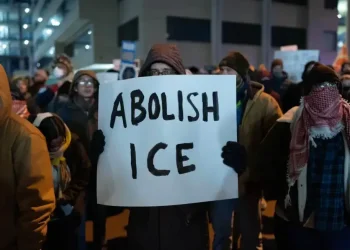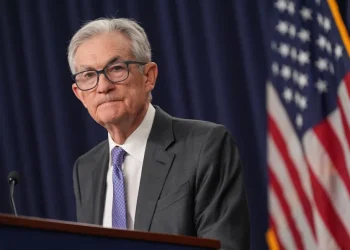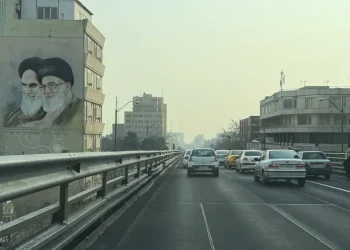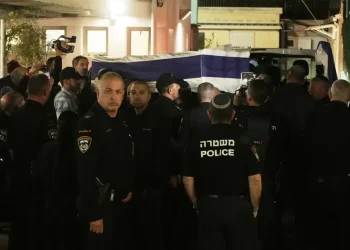Dozens killed by kidnappers in Nigeria’s Zamfara state despite ransom payment
Written July 29, 2025, 15:00 U.S. Eastern Time
At least 35 villagers abducted by armed groups in northern Nigeria’s Zamfara state have been killed, despite ransom payments made by their families. The attack, which occurred in Banga village earlier this year, highlights the growing brutality and impunity of kidnapping gangs in the region and has renewed calls for stronger security measures.
Rising insecurity in northern Nigeria
Kidnapping for ransom has become an increasingly common and deadly crime across northern Nigeria, especially in states like Zamfara, Kaduna, and Katsina. Armed criminal groups, commonly referred to locally as “bandits,” have turned abductions into a profitable industry, often targeting rural communities where state protection is limited or nonexistent.
In March, gunmen raided Banga village, located in the Kauran Namoda Local Government Area of Zamfara state, and abducted 56 residents. According to multiple Nigerian media reports, the attackers demanded a ransom of ₦1 million (approximately $655) for each individual taken.
Despite the ransom being paid, only 18 hostages were released, including 17 women and one boy, according to local officials. The remaining captives were later confirmed to have been killed.
Victims “slaughtered like rams,” local leader says
Manniru Haidara Kaura, chairman of the Kauran Namoda local government area, confirmed the deaths in a statement to the BBC Hausa service.
“Most of those killed were young people who were slaughtered like rams,” Kaura said, expressing deep frustration and grief over the senseless killings.
He added that the ransom was paid after difficult negotiations, and the kidnappers initially fulfilled part of their promise by releasing a portion of the hostages. However, the remaining individuals were later killed without explanation.
“Only they [the gunmen] know why they killed them. They are senseless and heartless people,” Kaura said. “They forget that they are killing their own brothers, and we will all meet before Allah.”
Sixteen of those released are currently hospitalized with injuries, while the bodies of those killed have not been returned. In many kidnapping cases in northern Nigeria, victims’ corpses are rarely recovered or returned to their families.
Legal efforts have not curbed ransom payments
In response to the rise in kidnapping-related violence, the Nigerian federal government passed legislation in 2022 that criminalized the payment of ransoms. Under the law, individuals who pay ransom to kidnappers may face up to 15 years in prison, while kidnappers who kill their hostages can receive the death penalty.
However, human rights advocates and community leaders argue that enforcement has been nearly nonexistent. No known arrests or convictions have been made under the 2022 law as of mid-2025.
In practice, many families continue to pay ransoms to secure the safe return of their loved ones, often because they feel abandoned by authorities or lack any other means of protection.
A father whose son was abducted in a separate case told Nigeria’s Daily Trust earlier this year: “We know it is a crime, but what other choice do we have? The government cannot protect us.”
Deepening humanitarian and security crisis
Zamfara, one of Nigeria’s poorest and most volatile states, has become a flashpoint in the country’s escalating security crisis. Armed gangs have carried out hundreds of attacks over the past few years, targeting villages, highways, schools, and religious sites.
According to the Nigerian-based security tracker SBM Intelligence, over 3,000 people were abducted in Nigeria in 2024 alone, with hundreds killed in captivity. The vast majority of these incidents occurred in the northwestern region, particularly in Zamfara, Sokoto, and Kaduna.
The Nigerian government, under President Bola Tinubu, has pledged to improve national security and crack down on banditry. In 2023, the federal government deployed additional military forces to Zamfara and surrounding states, including aerial surveillance units. However, local residents and officials say the operations have had little long-term effect.
“The security presence is temporary, and once they leave, the bandits return,” said Alhaji Lawal Musa, a community elder in Zamfara, speaking to Premium Times.
International concerns and calls for reform
The incident has also drawn attention from international human rights groups, including Amnesty International and Human Rights Watch, which have condemned the killings and urged Nigerian authorities to take urgent action.
In a statement following the Zamfara killings, Amnesty Nigeria said:
“The mass killing of kidnapped civilians after ransom was paid is a horrific violation of human rights and another clear sign that Nigeria’s security and justice systems are failing.”
Humanitarian organizations have warned that the continuous insecurity is displacing thousands and disrupting access to education, healthcare, and food supplies in rural areas.
Families caught between law and survival
The tragedy in Banga village illustrates a grim reality for many Nigerians living in the rural north. Families are often forced into impossible situations—break the law and pay ransom, or risk losing their loved ones.
Despite the 2022 law’s intent to discourage ransom payments and break the business model of kidnapping gangs, enforcement remains weak, and the lack of viable rescue efforts has only deepened public mistrust.
As one unnamed victim’s relative told BBC Hausa:
“If we don’t pay, they kill. If we do pay, they still kill. Where is our hope?”
Moving forward: What can be done?
Security experts and civil society groups have urged the Nigerian government to adopt a multi-pronged approach that includes:
- Community-based intelligence gathering
- Strengthening local policing and rapid-response units
- Enhancing coordination between federal and state agencies
- Supporting victims and families with legal aid and counseling
Unless effective strategies are implemented, critics warn, the cycle of abductions and retaliatory killings is likely to persist.
Conclusion
The killing of over 35 villagers in Zamfara despite ransom payments marks another tragic chapter in Nigeria’s worsening security crisis. As kidnappers continue to operate with near-total impunity, citizens remain trapped between fear, survival, and a lack of state protection. Without urgent reforms and credible enforcement of existing laws, such tragedies are likely to continue.
This article was rewritten by JournosNews.com based on verified reporting from trusted sources. The content has been independently reviewed, fact-checked, and edited for accuracy, neutrality, tone, and global readability in accordance with Google News and AdSense standards.
All opinions, quotes, or statements from contributors, experts, or sourced organizations do not necessarily reflect the views of JournosNews.com. JournosNews.com maintains full editorial independence from any external funders, sponsors, or organizations.
Stay informed with JournosNews.com — your trusted source for verified global reporting and in-depth analysis. Follow us on Google News, BlueSky, and X for real-time updates.













